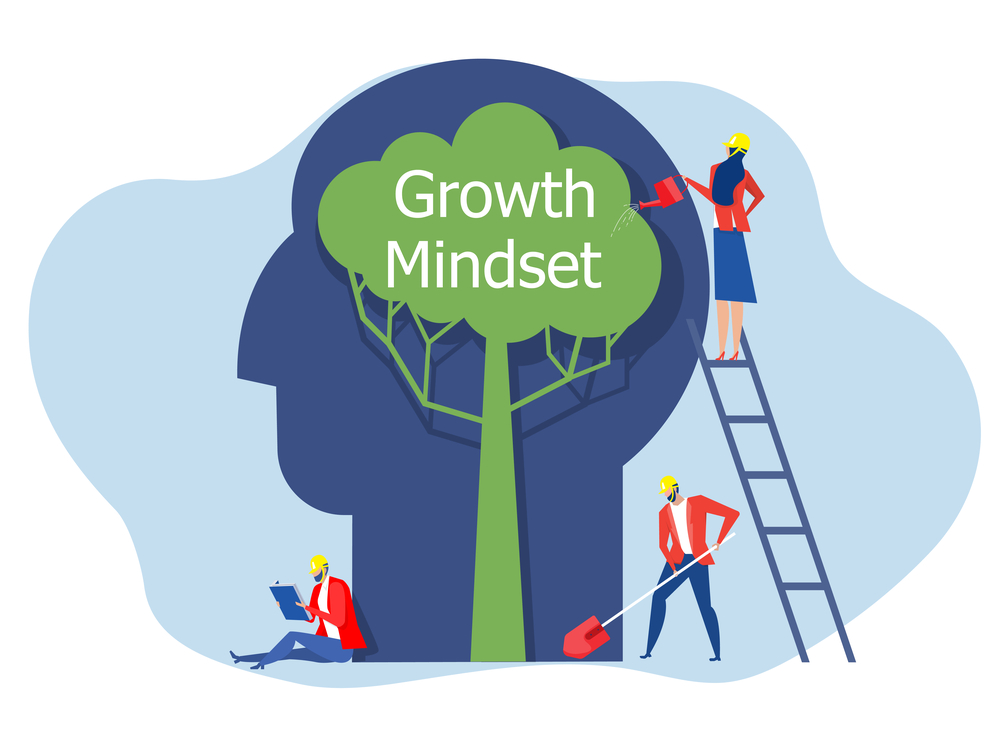The Path to Self-Improvement: Unlocking Your Full Potential
Self-improvement is a lifelong journey of growth, reflection, and effort to become a better version of oneself. It involves making conscious efforts to better your habits, mindset, skills, and overall well-being. This process, while deeply personal, can lead to profound transformations in all areas of life, from personal and professional growth to emotional and physical health. Whether you’re looking to achieve your career goals, build stronger relationships, or simply lead a more fulfilling life, the pursuit of self-improvement holds the key to unlocking your full potential.
1. The Foundation: Developing a Growth Mindset
At the core of self-improvement lies the concept of a growth mindset. Coined by psychologist Carol Dweck, a growth mindset is the belief that abilities and intelligence can be developed over time through effort, learning, and perseverance. In contrast, a fixed mindset assumes that talent and intelligence are static, which can lead to limiting beliefs and avoidance of challenges.
Adopting a growth mindset is essential for self-improvement because it encourages you to embrace challenges, learn from failure, and persist through difficulties. With a growth mindset, you view setbacks as opportunities for growth, rather than obstacles that hold you back. This shift in thinking allows you to tackle personal development with resilience and optimism, knowing that your efforts will ultimately lead to progress.
2. Setting Clear Goals for Progress
Effective self-improvement begins with setting clear, achievable goals. Without direction, it’s easy to feel lost or overwhelmed, especially when trying to improve multiple areas of life. One powerful method of goal-setting is the SMART framework, which encourages you to set goals that are Specific, Measurable, Achievable, Relevant, and Time-bound.
By breaking down larger goals into smaller, manageable tasks, you create a roadmap that makes the process of improvement less daunting. For example, instead of setting a vague goal like "I want to get fit," you can set a SMART goal such as "I will exercise for 30 minutes every day for the next three months." This goal is specific, measurable, achievable, relevant, and time-bound, making it easier to track your progress and stay motivated.
Moreover, setting both short-term and long-term goals can help you stay focused and ensure that your efforts are aligned with your bigger vision for personal growth.
3. Building Productive Habits
Habits are the cornerstone of personal development. Whether you’re striving to improve your physical health, increase productivity, or learn new skills, your habits play a critical role in shaping your success. Research shows that habits make up around 40% of our daily actions, which means that small changes in your daily routines can have a significant impact on your overall life.
The process of habit formation typically begins with a simple cue (something that triggers the habit), followed by a routine (the action you take), and an eventual reward (the positive outcome or feeling). For example, if you want to build a habit of reading, you might set a cue such as "every morning with my coffee," establish a routine of reading a chapter, and enjoy the reward of knowledge and personal growth.
To make new habits stick, it’s important to start small and be consistent. Rather than overwhelming yourself with dramatic changes, focus on incorporating one manageable habit at a time. Consistency is key—over time, these small efforts compound and lead to significant transformation.
4. Prioritizing Mental and Physical Health
Self-improvement is incomplete without attention to your physical and mental well-being. In order to grow and succeed, you must first take care of your body and mind.
Physical Health: Regular exercise, healthy eating, and adequate sleep are essential to maintaining physical health. Exercise not only improves physical fitness but also boosts energy, mood, and cognitive function. Incorporating physical activity into your daily routine can help reduce stress, enhance focus, and improve overall quality of life. Furthermore, adopting a balanced diet full of whole foods and nutrients can nourish your body and mind, supporting cognitive function and emotional stability.
Sleep is another critical element of physical health. Lack of sleep can lead to reduced productivity, poor decision-making, and heightened stress levels. Ensuring that you get enough restorative sleep each night will help you stay sharp, focused, and energized.
Mental Health: Mental and emotional well-being are equally important for personal growth. Practices like mindfulness, meditation, and journaling can be incredibly effective in managing stress and improving emotional health. Taking time each day to center yourself through deep breathing or mindful reflection can enhance your focus and emotional resilience.
In addition, it’s crucial to develop emotional intelligence (EQ)—the ability to understand and manage your own emotions, as well as the emotions of others. High EQ is linked to better decision-making, stronger relationships, and greater overall happiness. Working on your emotional intelligence can help you better navigate challenges, communicate effectively, and develop deeper, more meaningful connections.
5. Learning and Skill Development
Self-improvement is fueled by a commitment to lifelong learning. Whether you’re looking to advance your career, develop new hobbies, or grow intellectually, expanding your knowledge and skills is essential for progress. The world is constantly changing, and embracing a mindset of continuous learning ensures that you stay adaptable and open to new opportunities.
Start by identifying the skills or knowledge areas that align with your personal or professional goals. For example, if you want to improve your career prospects, you might pursue courses or certifications in areas relevant to your field. Alternatively, if you have a passion for creativity, learning new artistic techniques or exploring new forms of self-expression can bring fulfillment and growth.
In addition to formal learning, seek out opportunities to learn from others. Surround yourself with people who inspire you, whether through mentorship, networking, or group activities. By engaging with others who share your interests and goals, you can broaden your perspectives and accelerate your growth.
6. Overcoming Challenges and Building Resilience
The journey of self-improvement is rarely smooth. Along the way, you will encounter challenges, setbacks, and moments of doubt. However, resilience is the ability to bounce back from adversity, and it’s a critical skill for long-term success.
To build resilience, start by reframing your mindset around failure. Instead of viewing setbacks as signs of defeat, see them as opportunities to learn and grow. Embrace challenges as part of the process, and use them as stepping stones to greater achievement. Developing a strong support system of friends, family, or mentors can also help you stay motivated and overcome obstacles.
Additionally, practicing self-compassion during tough times is essential. Recognize that self-improvement is a marathon, not a sprint, and give yourself grace when things don’t go as planned. Acknowledging your efforts, even in the face of setbacks, will help you maintain your motivation and continue on your path of growth.
7. Cultivating Meaningful Relationships
No journey of self-improvement is complete without fostering positive relationships with others. Human beings are social creatures, and strong, supportive relationships are essential for both emotional and personal growth.
Take time to nurture your relationships with family, friends, colleagues, and mentors. Practice effective communication, empathy, and active listening to build deeper connections. Relationships can offer emotional support, help you gain new perspectives, and even provide opportunities for personal or professional growth.
Furthermore, be intentional about the people you surround yourself with. Seek out individuals who uplift and inspire you, rather than those who drain your energy or hold you back. Positive relationships will encourage your growth and help you stay motivated in your journey toward self-improvement.

8. Conclusion: Embrace the Journey
Self-improvement is not a destination but an ongoing process of growth and self-discovery. It requires dedication, patience, and a willingness to continuously reflect, learn, and adapt. By focusing on building a growth mindset, setting clear goals, developing productive habits, prioritizing health, and embracing challenges, you can unlock your true potential and lead a more fulfilling life.
Remember, the path to self-improvement is unique for everyone. Take it one step at a time, celebrate your progress, and stay committed to becoming the best version of yourself.





You must be logged in to post a comment.